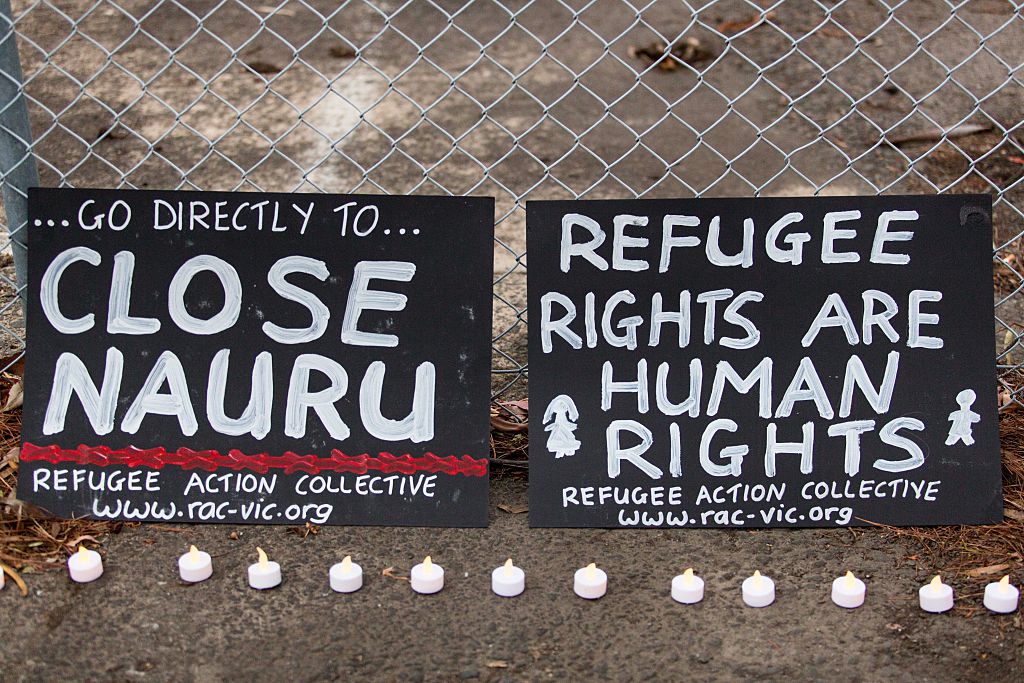
Health & Medicine
Young and resilient

The more diverse your neighbourhood, the more open you are likely to be to immigration and refugees (but not always)
Published 23 November 2018
Earlier this year, US President Donald Trump initiated his “zero tolerance” policy – detaining and prosecuting anyone who illegally enters the United States. The result, according to Human Rights Watch, was that more than 2000 immigrant children were separated from their parents.
After national and international outcry from the public and politicians, Donald Trump signed an executive order to end the separations, but a month later announced that he intended to end birthright citizenship – the principle that every child born on US soil is automatically a native-born citizen.

These developments, alongside the US Supreme Court’s decision to uphold Trump’s travel ban which again brought with it global protest, maintains the position of border security and illegal immigration as one of the most divisive issues of our time.
The same is true here in Australia. It is clear to see in the government’s policy to detain refugees and asylum seekers in much-criticised and “life-threatening” conditions on Nauru and Manus Island.

Health & Medicine
Young and resilient
Trump’s zero tolerance policy that led to parent and child separations, is mirrored by some of our own government’s policies, including the recent decision to settle children from detention in Australia, but only temporarily.
In countries like Australia, the United States, and Canada, political parties and the public remain sharply and vocally divided over attitudes toward immigrants and refugees.
But what influences these diverging attitudes toward immigration, refugee and asylum seeker policy? And what factors contribute to whether someone is open to, or opposed to, integrating ‘outsiders’?
It turns out that where we live plays a key role.
Recent surveys conducted around the time of federal election campaigns in both Canada and Australia, reveal a range of factors associated with open or closed attitudes to immigrants and refugees.
Some of these are common sense. For example, political party affiliation is important – if you identify with a Conservative party in Canada or the Liberal Party in Australia then you are far more likely to oppose higher immigration and refugee intake.

Perception of threat also matters.
This can come in two forms – the economic threat of immigrants or refugees competing for jobs, and cultural threat, with anxiety over the implications for national values, identity, and culture.
In Canada and Australia, both of these are important in shaping attitudes. The greater the perceived danger of losing your job or your identity, the more likely you are to be wary of immigrants or refugees.

Politics & Society
History repeating: Losing citizenship in India
The diversity of your neighbourhood matters too, but not always.
We might assume that the more experience you have with immigrants and refugees in your local neighbourhood, the more economic or cultural threat you might perceive, the more closed your attitudes will be.
But what we find is the opposite.
In both Canada and Australia, people who live in diverse neighbourhoods are more likely to support open immigration or refugee policy. The corollary is that if you live in an area with a smaller proportion of immigrants and refugees, you are more likely to have closed attitudes toward any newcomers.
This is not always the case though.
It’s also to some degree dependent on your political party identification. In Australia, new research shows that if you identify with the Liberal party then it doesn’t matter very much whether you are in a diverse neighbourhood or not, you are likely to have closed attitudes to immigrants and refugees.

This differs for Labor voters, whose likelihood to have more open attitudes to refugees correlates with the percentage of immigrants and refugees living in their neighbourhood.
On the Australian side, the research draws on data from the Australian Election Study (AES) from 2010, 2013 and 2016 with between 2000 and 4000 respondents each year.
The AES is conducted as a post-election mail survey of the Australian voting-age population. The restricted datasets (containing respondent postcodes) were obtained from the Australian Data Archive.

Politics & Society
Academics call for an end to immigration detention
These data allow us to link Census data from the Australian Bureau of Statistics to survey respondents, and so we’re able to measure not only the size of the foreign-born population in those neighbourhoods, but also how the foreign-born population has changed over time.
The Canadian data is from the Focus Canada study conducted in June 2015 (in the period leading up to the 2015 federal election) by the Environics Institute for Survey Research, involving over 2000 respondents in all 10 provinces.
The Environics Institute provided the survey data with postal codes and city names, allowing us to make the same link between the survey data and estimates of the local foreign-born population taken from the CensusPlus database created by Environics Analytics.
So, if you vote Conservative (in Canada) or Liberal (in Australia) and perceive economic or cultural threat from outsiders, then you will be more likely to have closed attitudes to immigrants and refugees.

Living in a context with a high concentration of immigrants doesn’t lead people to a greater perception of threat, in fact, the more that people live in the midst of cultural diversity, the more likely they are to hold open attitudes.
Still, reflecting our politically polarised world, political party identification can override all of this.
For some, the perception of economic or cultural threat from outsiders matters more than the actual threat posed. Some attitudes are impervious to experience.
This data provides us with a snapshot, and an insight, into the diverse range of views in both Australia and Canada when it comes to the politically fraught issue of immigration.
This research was funded in part by The Policy Lab at the University of Melbourne.
Banner image: Getty Images